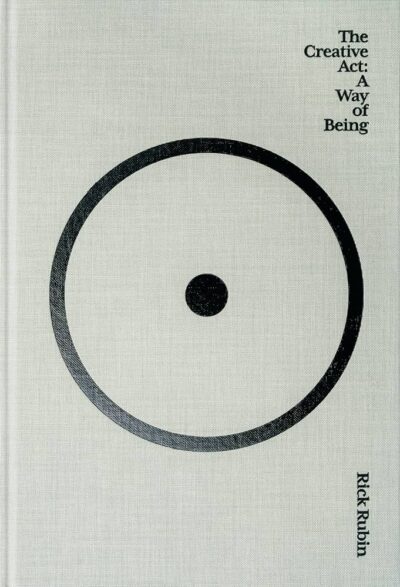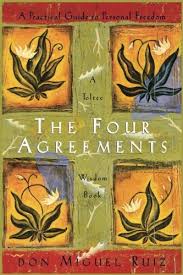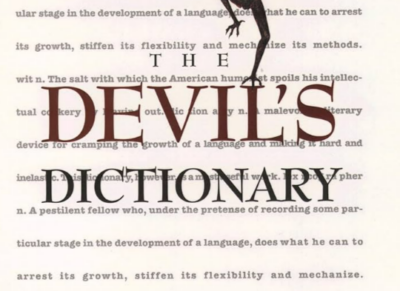128 Results in the "Philosophy" category
Biography & Memoir (434)
Books Like (8)
Business & Finance (26)
Children’s Fiction (203)
Dystopian (16)
Education & Learning (9)
Fantasy (1174)
fashion (1)
Fiction (4409)
Health & Wellness (21)
Historical Fiction (504)
Horror (159)
Literary Fiction (776)
Non-Fiction (1205)
Novel (229)
Others (106)
Poetry (208)
Politics & History (131)
Posts (64)
Psychology (46)
Religion & Spirituality (1)
Romance Novel (535)
Science & Technology (82)
Science Fiction (204)
Self-Help & Personal Development (99)
Thriller / Mystery (858)
Travel & Adventure (2)
True Crime (55)
view (96)
Young Adult (284)
-
Chapter
Tuning In
 The chapter "Tuning In" delves into the idea that creativity is not an isolated human endeavor but a universal force that permeates all aspects of existence. Just as rivers carve landscapes and trees sprout leaves in accordance with nature’s cycles, human beings create in alignment with an unseen, yet omnipresent, creative energy. The text suggests that this energy, often perceived as inspiration, is not something individuals generate on their own but something they tune into—much like radio antennas…
The chapter "Tuning In" delves into the idea that creativity is not an isolated human endeavor but a universal force that permeates all aspects of existence. Just as rivers carve landscapes and trees sprout leaves in accordance with nature’s cycles, human beings create in alignment with an unseen, yet omnipresent, creative energy. The text suggests that this energy, often perceived as inspiration, is not something individuals generate on their own but something they tune into—much like radio antennas…-
341.4 K • Ongoing
-
-
Chapter
Everyone Is a Creator
 The chapter "Everyone Is a Creator" challenges the widespread belief that creativity is an exclusive talent granted to a select few, instead presenting it as an innate quality possessed by all humans. Creativity is not confined to the realms of art, music, or literature but is interwoven into the fabric of everyday life. Every decision, from solving problems at work to planning meals at home, involves an element of originality. Even the most mundane activities, such as rearranging furniture for better…
The chapter "Everyone Is a Creator" challenges the widespread belief that creativity is an exclusive talent granted to a select few, instead presenting it as an innate quality possessed by all humans. Creativity is not confined to the realms of art, music, or literature but is interwoven into the fabric of everyday life. Every decision, from solving problems at work to planning meals at home, involves an element of originality. Even the most mundane activities, such as rearranging furniture for better…-
341.4 K • Ongoing
-
-
Chapter
INTRODUCTION
 INTRODUCTION The Smokey Mirror THREE THOUSAND YEARS AGO, THERE WAS A HUMAN just like you and me who lived near a city surrounded by mountains. The human was studying to become a medicine man, to learn the knowledge of his ancestors, but he didn’t completely agree with everything he was learning. In his heart, he felt there must be something more. One day, as he slept in a cave, he dreamed that he saw his own body sleeping. He came out of the cave on the night of a new moon. The sky was clear, and he…
INTRODUCTION The Smokey Mirror THREE THOUSAND YEARS AGO, THERE WAS A HUMAN just like you and me who lived near a city surrounded by mountains. The human was studying to become a medicine man, to learn the knowledge of his ancestors, but he didn’t completely agree with everything he was learning. In his heart, he felt there must be something more. One day, as he slept in a cave, he dreamed that he saw his own body sleeping. He came out of the cave on the night of a new moon. The sky was clear, and he…-
90.9 K • Ongoing
-
-
Chapter
Chapter Q
 Chapter Q opens with Bierce’s definition of Queen, who he presents as a monarch not limited to figurehead or consort. Her presence is shown to possess influence both active and implied, shaping outcomes whether she reigns directly or supports from behind the throne. Bierce suggests that while kings may rule, queens maneuver—often more subtly, and sometimes with greater lasting impact. This nuanced depiction challenges the assumption that power is loud, offering instead the idea that it is often wielded…
Chapter Q opens with Bierce’s definition of Queen, who he presents as a monarch not limited to figurehead or consort. Her presence is shown to possess influence both active and implied, shaping outcomes whether she reigns directly or supports from behind the throne. Bierce suggests that while kings may rule, queens maneuver—often more subtly, and sometimes with greater lasting impact. This nuanced depiction challenges the assumption that power is loud, offering instead the idea that it is often wielded…-
82.1 K • Ongoing
-
-
Chapter
Chapter P
 Chapter P opens with Bierce’s treatment of Pain, which he describes not merely as a physical sensation but as a reminder of life’s imperfection. It is framed not as something to avoid, but something that teaches—unwanted yet often more honest than pleasure. Bierce argues that pain, unlike happiness, demands attention and shapes behavior. In his view, discomfort is more instructive than joy, serving as a sobering influence on human pride. Through this, pain is elevated from nuisance to necessary…
Chapter P opens with Bierce’s treatment of Pain, which he describes not merely as a physical sensation but as a reminder of life’s imperfection. It is framed not as something to avoid, but something that teaches—unwanted yet often more honest than pleasure. Bierce argues that pain, unlike happiness, demands attention and shapes behavior. In his view, discomfort is more instructive than joy, serving as a sobering influence on human pride. Through this, pain is elevated from nuisance to necessary…-
82.1 K • Ongoing
-
-
Chapter
Chapter O
 Chapter O begins with Bierce’s sardonic take on Oath, described not just as a solemn vow but as an appeal to a deity designed to scare someone into telling the truth. He points out that its real power comes less from divine authority and more from the fear of perjury and punishment. The deeper suggestion is that society often relies on fear rather than integrity to uphold honesty. Bierce’s view strips the ceremonial dignity from the act and leaves behind a mechanism rooted in human insecurity. The oath…
Chapter O begins with Bierce’s sardonic take on Oath, described not just as a solemn vow but as an appeal to a deity designed to scare someone into telling the truth. He points out that its real power comes less from divine authority and more from the fear of perjury and punishment. The deeper suggestion is that society often relies on fear rather than integrity to uphold honesty. Bierce’s view strips the ceremonial dignity from the act and leaves behind a mechanism rooted in human insecurity. The oath…-
82.1 K • Ongoing
-
-
Chapter
Chapter N
 Chapter N begins with Bierce’s take on Nectar, the mythical drink of the gods, rendered here as a lost recipe that modern drinkers in Kentucky may have accidentally stumbled upon. His tone lightly mocks the human tendency to romanticize ancient myth while indulging in earthly pleasures that serve similar purposes. Bierce transforms nectar from a symbol of divine vitality to a joke about strong spirits, linking the sacred and profane through satire. This sets the stage for the chapter’s interplay…
Chapter N begins with Bierce’s take on Nectar, the mythical drink of the gods, rendered here as a lost recipe that modern drinkers in Kentucky may have accidentally stumbled upon. His tone lightly mocks the human tendency to romanticize ancient myth while indulging in earthly pleasures that serve similar purposes. Bierce transforms nectar from a symbol of divine vitality to a joke about strong spirits, linking the sacred and profane through satire. This sets the stage for the chapter’s interplay…-
82.1 K • Ongoing
-
-
Chapter
Chapter M
 Chapter M opens with Bierce’s sardonic interpretation of Mace, not as an ornamental staff of office, but as a relic of violence disguised in symbolism. Once wielded to physically crush opposition, it now merely represents authority—yet the threat it implies has not vanished. Bierce suggests that all symbols of power retain traces of their brutal origins, no matter how ceremonial they appear today. This observation invites reflection on how civilization dresses violence in the robes of civility. The…
Chapter M opens with Bierce’s sardonic interpretation of Mace, not as an ornamental staff of office, but as a relic of violence disguised in symbolism. Once wielded to physically crush opposition, it now merely represents authority—yet the threat it implies has not vanished. Bierce suggests that all symbols of power retain traces of their brutal origins, no matter how ceremonial they appear today. This observation invites reflection on how civilization dresses violence in the robes of civility. The…-
82.1 K • Ongoing
-
-
Chapter
Chapter L
 Chapter L opens with a stark look at Labor, which Bierce describes as an effort not for personal gain but for the benefit of someone else—typically an employer or master. This definition frames labor as a one-sided transaction in which toil and time are exchanged for minimal return, questioning the dignity often associated with hard work. He implies that work, praised as virtuous, often disguises exploitation beneath the language of duty. Bierce’s entry calls attention to how society masks inequality…
Chapter L opens with a stark look at Labor, which Bierce describes as an effort not for personal gain but for the benefit of someone else—typically an employer or master. This definition frames labor as a one-sided transaction in which toil and time are exchanged for minimal return, questioning the dignity often associated with hard work. He implies that work, praised as virtuous, often disguises exploitation beneath the language of duty. Bierce’s entry calls attention to how society masks inequality…-
82.1 K • Ongoing
-
-
Chapter
Chapter K
 Chapter K opens with an imagined history of the letter itself, tying K to an ancient culture known as the Cerathians, who Bierce claims once flourished in the land of Smero. The letter's modern form, according to his mock-history, emerged from a catastrophe—the collapse of a sacred temple—which transformed the Cerathian character “Klatch” into a symbol of loss and ruin. Bierce connects the shape of the letter to tragedy, humorously suggesting that the alphabet itself bears the weight of forgotten…
Chapter K opens with an imagined history of the letter itself, tying K to an ancient culture known as the Cerathians, who Bierce claims once flourished in the land of Smero. The letter's modern form, according to his mock-history, emerged from a catastrophe—the collapse of a sacred temple—which transformed the Cerathian character “Klatch” into a symbol of loss and ruin. Bierce connects the shape of the letter to tragedy, humorously suggesting that the alphabet itself bears the weight of forgotten…-
82.1 K • Ongoing
-
- Previous 1 … 6 7 8 … 13 Next
